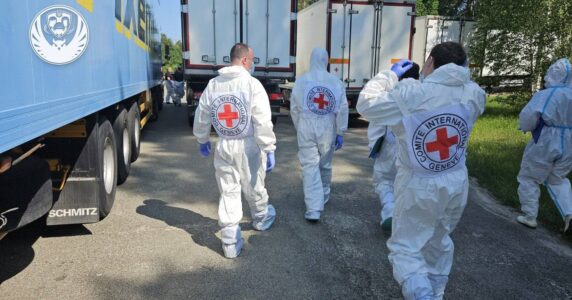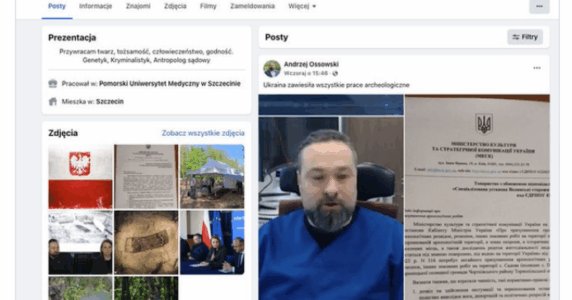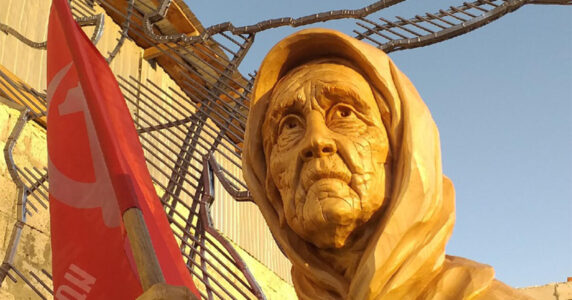Navigation and useful materials
Russian propaganda often uses the Jewish issue to divide Ukrainians and Jews. And it does that mainly by parasitizing historical issues or exaggerating various minor incidents to global proportions (and often fabricating them).
But it is hard to believe Russians when they try to portray Ukrainians as the ultimate anti-Semites. First of all, because any complaints about Ukrainian anti-Semitism on the part of the Kremlin look comical against the background of Russian chauvinism and xenophobia, which have flourished in modern Russia.
While Russians are trying to portray themselves as the main “denazifiers,” the issue of whether it is time to leave the country or to suffer is becoming more and more urgent for the Jewish community of Russia itself.
Actually, it was none other than the former chief rabbi of Moscow, Pinchas Goldschmidt, who urged Jews to leave Russia back in December 2022.
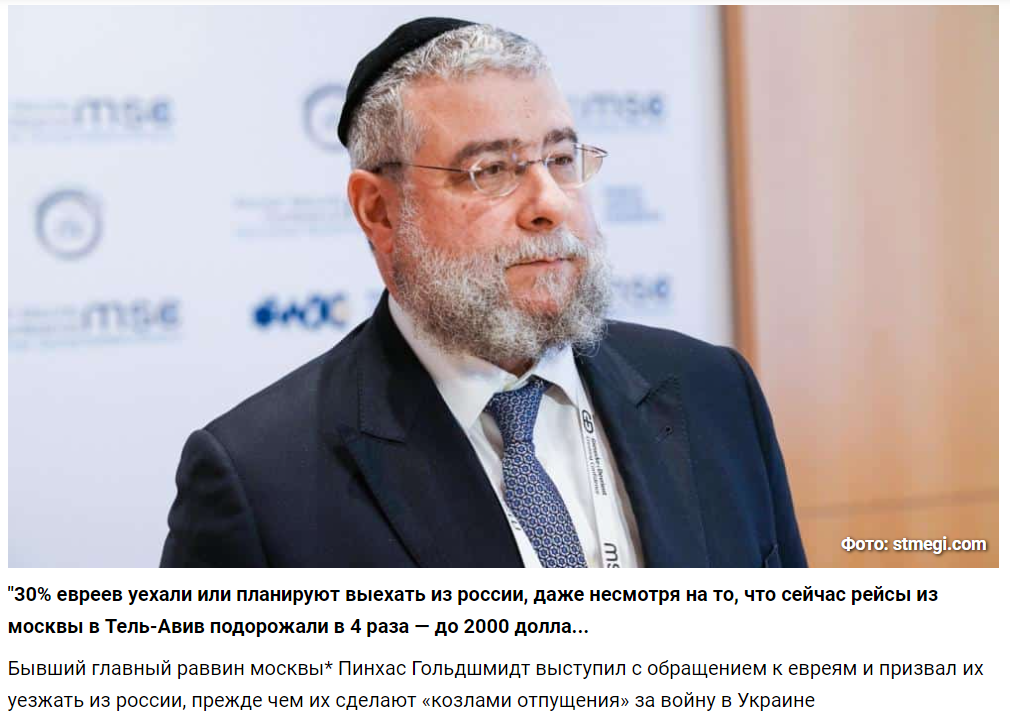
“If you look at Russian history, you can see that every time the country’s political system was in danger, the government tried to shift the anger and discontent of the masses to the Jewish community. This happened both during the tsarist times and at the end of the Stalinist regime,” said the rabbi in an interview with The Guardian at the time.
Pinchas Goldschmidt himself left Moscow two weeks after February 24, 2022, due to his refusal to publicly support the “special military operation” and pressure on his family from the Russian authorities. Rabbi Pinchas was considering the idea that all his compatriots should leave the Russian Federation as soon as possible for 9 months.
During this time, Russia’s foreign minister Lavrov also made a notable comment on the subject, saying in May 2022 that “Hitler was also of Jewish origin, so that doesn’t mean anything.” “We have long been hearing the wise Jewish people say that Jews themselves are the biggest anti-Semites,” he added in an interview for the Italian Rete 4.
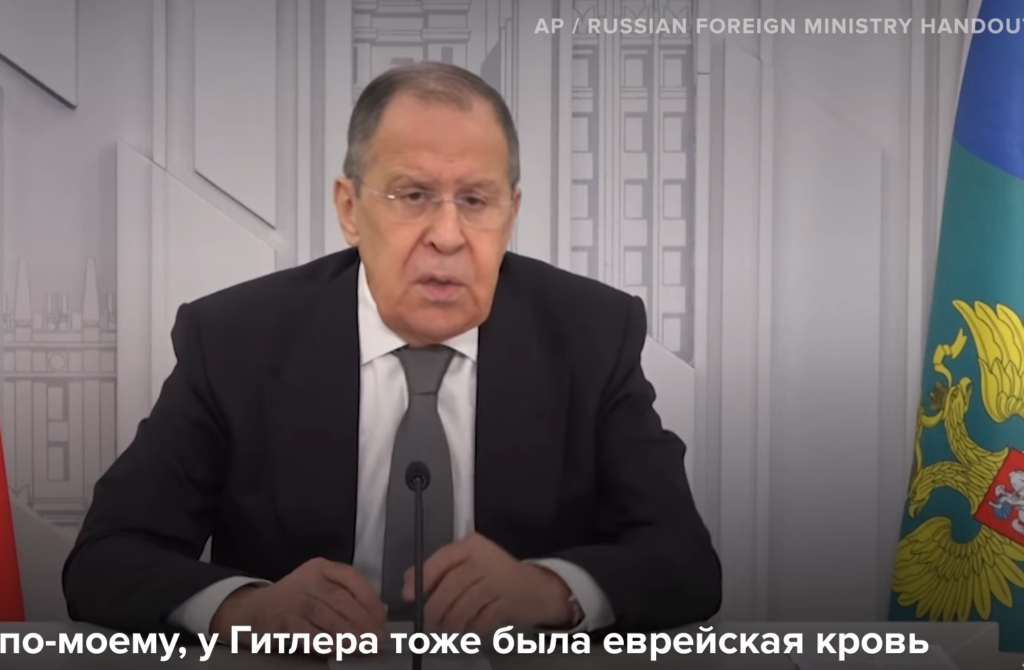
Furthermore, in October 2022, the Assistant Secretary of Russia’s Security Council Alexey Pavlovich mentioned the Lubavitch Hasidism in his article about the “new pagan cults” in Ukraine. The Russian official called it a “cult” and claimed that the main principle of its supporters is “supremacy over all nations and peoples.”
As we can see, those comments did not come from marginal Russian experts. But now, an even bigger figure has spoken on the subject. Vladimir Putin once again mentioned the Jewish origin of the Ukrainian president. He said that the “Western puppeteers put an ethnic Jew at the helm of Ukraine” in order to “cover up [Ukraine’s] anti-human nature.” “This makes the situation extremely disgusting, that an ethnic Jew covers up the glorification of Nazism and those responsible for the Holocaust in Ukraine at the time,” said Putin. He also added that “regular Israeli citizens understand this best” and suggested looking up what they “say about it online.”
In June, Putin said he has Jewish friends who don’t like the president of Ukraine. “I have had many Jewish friends since childhood. They say that Zelenskyy is not a Jew, that it’s a shame of the Jewish people. These are not jokes, not irony,” said Putin backstage at the St. Petersburg Economic Forum. And this is not a joke, indeed: every anti-Semite always has a token “Jewish friend.” But these mythical Jews are meant to never disagree with their personal anti-Semites.
Putin has issues with Jews. What they write and do is mostly not something that the Kremlin dictator likes. The only somewhat positive aspect of their relations was when Israeli ambassador in Russia Alexander Ben Zvi signed a memorandum of cooperation on joint cinematic production with Russia’s Ministry of Culture on September 6, the day of the terrorist strike on the market in Kostiantynivka.
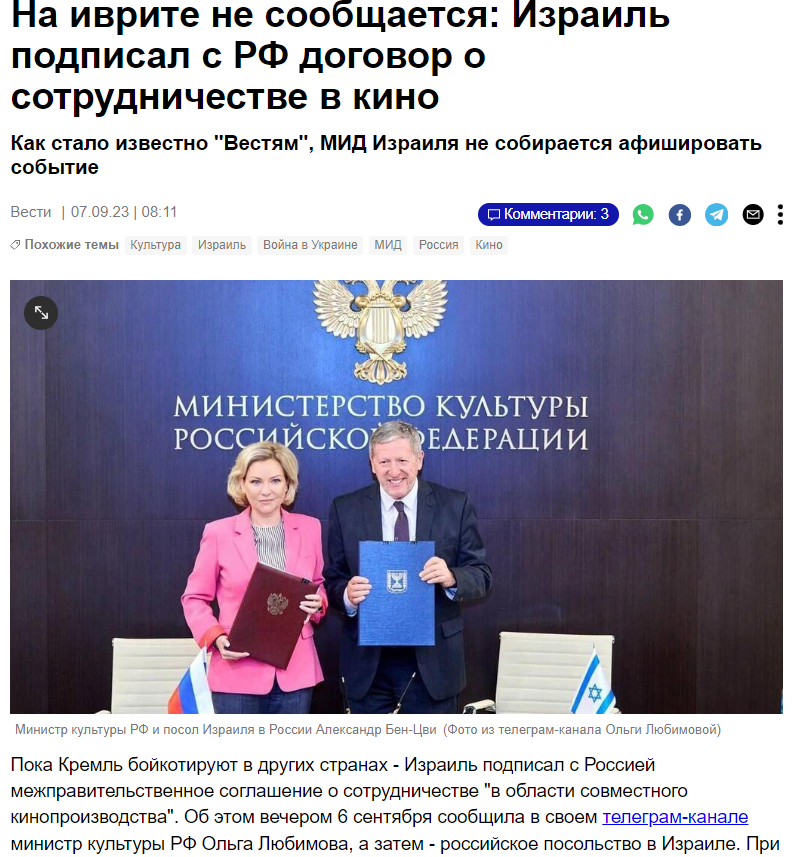
The Israeli authorities did not publicize this agreement, and there was no press release in Hebrew, either. Not even local directors and actors would have much knowledge about the issue if it weren’t for the personal Telegram channel of Russia’s Minister of Culture Olga Lubimova, who spilled the beans and happily shared the “long-awaited agreement.”
The setting left much to be desired — those same “regular Jews” had just protested against the famous Lenkom theatre touring in Israel, leaving it without a single penny. The Lenin Komsomol — “Lenkom” — itself is long gone, director Mark Zakharov is gone, Yevgeniy Leonov has also been dead for almost thirty years, and the Mark Zakharov Lenkom Theatre still exists. However, unknown sponsors funded the trip to Israel for the theatre, which transports “cars for the Russian army and the special military operation.”
Over the past year and a half, “regular Jews” blocked multiple Russian celebrities from entering the country, including Olga Buzova, Elena Vayenga, Grigory Leps, Filipp Kirkorov, Alexander Rozenbaum, Vyacheslav Butusov and the RASA duet. Now, the public is preparing to fight against the tour of the Russian Ballet scheduled for February 2024, led by People’s Artist of the USSR Vyacheslav Gordeyev. Back in the day, he actively celebrated the annexation of Crimea, and now he has little chance of seeing Jerusalem. Lenkom responded with an open letter “from the actors,” published in the main official media of the Russian government, Rossiyskaya Gazeta.
Lovely sentiment from representatives of the “great Russian culture” towards Israeli citizens: “Writhing in helpless fury, uprooted Israeli Ivans, who pose in victorious triumph, did nothing but demonstrate the unsightly view of ‘defenders of Ukraine’ feeding from various countries.”
As shown by recent polls, 76% of the Israeli population supported Ukraine after the large-scale invasion, with only 10% supporting Russia. Support for Russia was particularly prevalent among voters of right-wing parties, though it still did not exceed 13%. Voters of centrist and left-wing parties were unequivocally pro-Ukrainian: 87% and 90% respectively.
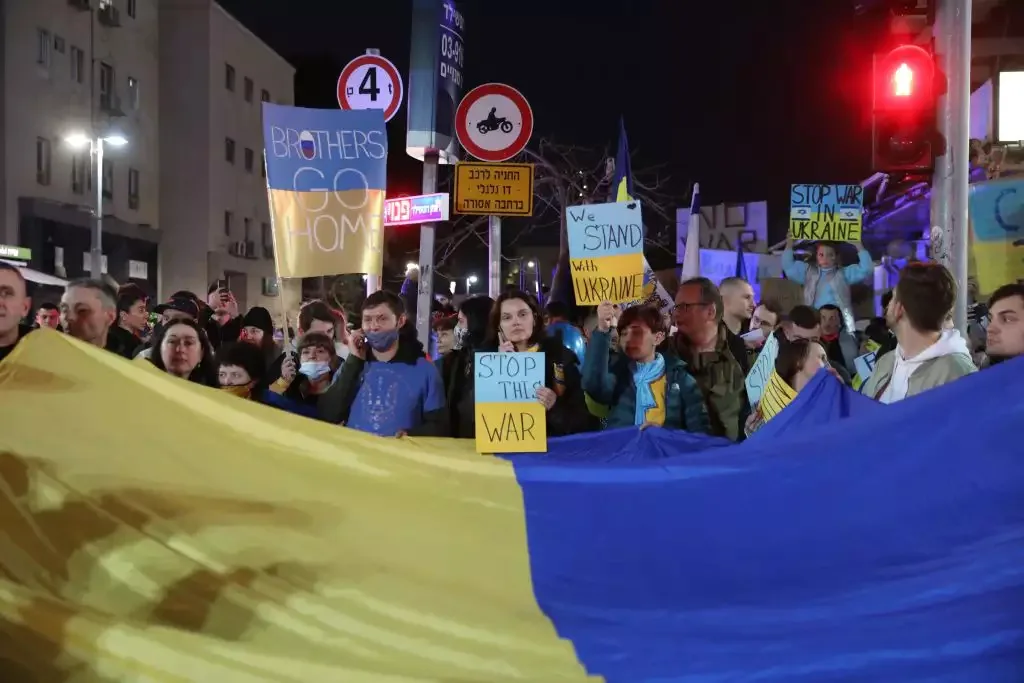
Photo: EPA
Benjamin Netanyahu’s government is painfully balancing between its constituents, Iran, Russia, Ukraine, and the United States. On September 6, they signed an agreement with Russia, and on September 7, Netanyahu already called Zelenskyy and discussed the safety of Hasidic pilgrims in Uman. The same pilgrims that Russia considers a “cult” advocating “superiority over all nations and peoples.”
The government of Israel, in turn, simultaneously urges Hasidim to refrain from travelling to Ukraine — yet allocates 4 million shekels to help religious travellers.
And while the Israeli authorities do heed Putin, Russia keeps Jews in mind. Officers of Russia organization is demanding a ban on the run of the British film Golda. Judgment Day. The film will be inspected for “inciting international hatred”: Golda Meir mentions Ukraine in 1918, and from the point of view of the “Officers” and Vladimir Putin, Ukraine did not exist at the time.
Israel is the only country in the world to increase the number of flights to Russia after the large-scale invasion — they are trying to evacuate their people. Meanwhile, in July 2022, the Ministry of Justice of Russia already made the first attempt to terminate the operations of the Jewish agency Sochnut. In fact, Moscow can choose either, be it blocking Sochnut or giving modern SU-35 aircraft to Iran. Both will be detrimental to its relations with Israel.
Everything is teetering on the edge, and it is only a matter of time before Russian state-sponsored anti-Semitism reaches full speed.
Centre for Strategic Communication and Information Security
If you have found a spelling error, please, notify us by selecting that text and pressing Ctrl+Enter.
